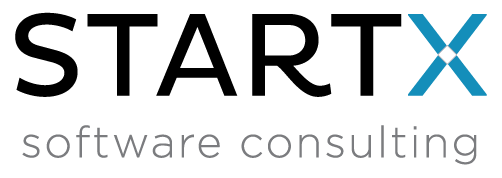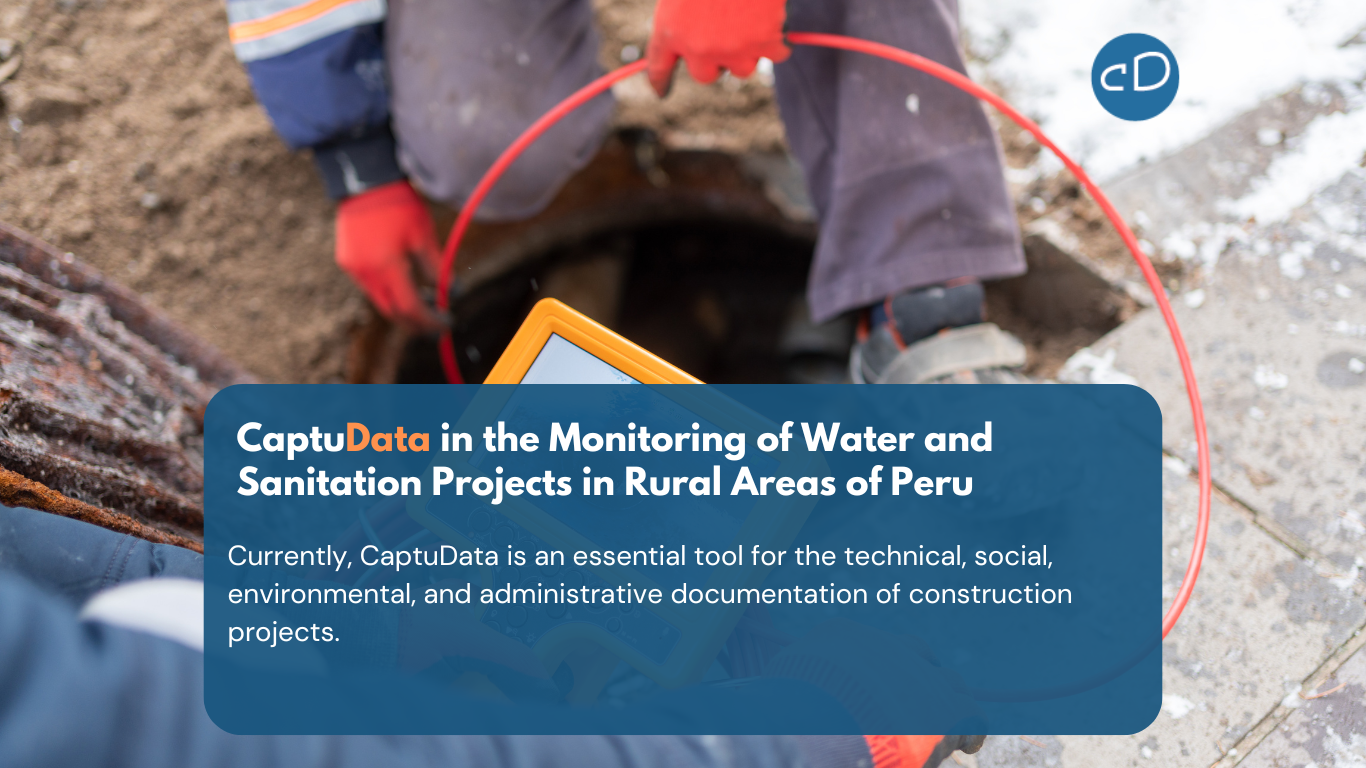Smart Supervision in Rural Areas
Supervising water and sanitation projects in rural communities across Peru used to be a logistical and operational challenge. Long distances, lack of connectivity, and reliance on manual reports made it difficult to track progress and validate construction works. For years, field supervisors had to travel long distances to document project progress using physical forms and digital cameras, causing significant delays in data updates.
This wasn’t just an operational issue—it also limited the ability of the Inter-American Development Bank (IDB) and the PIASAR Program to make timely decisions and audit the real progress of each project. The lack of real-time visibility hindered effective accountability and created uncertainty around field-reported updates.
For the PIASAR team, CaptuData represented a radical change in planning and monitoring rural infrastructure. Today, they can:
-
Detect delays more quickly.
-
Optimize resources more effectively.
-
Improve real-time decision-making.
Who is the Inter-American Development Bank (IDB) in Peru?
The Inter-American Development Bank (IDB) is one of the main sources of financing for economic, social, and institutional development in Latin America and the Caribbean. In Peru, the IDB works closely with the government and various entities to support projects that drive sustainable growth and social inclusion.
Its presence in the country focuses on providing technical assistance, strengthening institutional capacities, and financing programs that improve quality of life—especially in key sectors such as infrastructure, health, education, water and sanitation, rural development, and government modernization.
What is the PIASAR Program?
The Rural Water and Sanitation Program (PIASAR) is an initiative financed by the IDB and executed by the National Rural Sanitation Program (PNSR) under the Ministry of Housing, Construction, and Sanitation (MVCS) of Peru. Its main goal is to improve sanitary and environmental conditions in prioritized rural areas by reducing the water and sanitation coverage gap.
PIASAR aims to:
-
Expand water and sanitation service coverage in rural communities.
-
Promote sustainable service management by strengthening Regional Housing, Construction and Sanitation Directorates (DRVCS), Municipal Technical Areas (ATMs), and Water and Sanitation Services Boards (JASS).
-
Encourage proper service usage through health and environmental education for beneficiary families.
-
Support the MVCS in its regulatory, planning, and technical assistance roles in water and sanitation.
The program has made a significant impact in closing gaps in basic infrastructure, aligned with the Sustainable Development Goals.
The Solution – CaptuData in Action
In this context, CaptuData emerged as an innovative solution to digitize the monitoring of rural infrastructure projects. Since its implementation in the PIASAR Program, CaptuData has enabled:
-
Capturing visual field evidence, even without internet connection.
-
Automatically syncing data once the signal is restored.
This reduced the data update time from 21 days to just one week.
The initial pilot in 10 rural projects validated its effectiveness in low-connectivity environments, allowing the team to:
-
View progress in real time with geo-referenced evidence.
-
Gain a management tool for more efficient project oversight.
-
Optimize data validation.
-
Improve field planning.
Thanks to CaptuData, the PIASAR team moved away from manual updates and embraced a digital model that:
- Improved data collection.
- Enabled more strategic planning for each supervised project.
Real Impact on the Ground
CaptuData’s adoption allowed PIASAR to:
- Monitor technical visits across 109 PIASAR I projects.
- Oversee field staff presence and technical visits across 167 PIASAR II projects simultaneously.
- Validate progress and technical documentation in real time at sites such as Virgen del Carmen and San Marcos de Rocchac.
“Now we can know exactly what condition each project is in, who was there, and what was done—everything from a centralized dashboard.”
— Carlos Cisneros, PIASAR
Additional benefits included:
- Improved supervision and coordination with field stakeholders.
- Faster decision-making during key moments.
- Eliminated risk of data loss.
- Enabled the IDB to remotely audit progress, significantly reducing validation times.
Looking Ahead
CaptuData’s success with PIASAR opened the door for its potential use in other IDB rural projects. The ability to:
- Audit projects in real time.
- Access information from anywhere.
Marks a significant shift in managing infrastructure initiatives in remote areas.
For the PIASAR team, expanding CaptuData to other projects means:
- A technological leap forward.
- A more efficient and transparent management model.
“It would be ideal for this model to be replicated in other water and sanitation projects, as it allows auditing every detail without physically being on-site.”
— Carlos Cisneros, PIASAR
Transforming Field Monitoring
CaptuData didn’t just improve a process—it revolutionized how rural projects are supervised. With its ability to:
- Capture real-time data.
- Ensure traceability.
- Enable remote audits.
It has become a benchmark for transparency and efficiency in rural infrastructure projects in Peru.
CaptuData not only transformed how the IDB validates its projects—it empowered PIASAR to:
- Optimize planning and monitoring.
- Ensure that every advancement in the field is recorded, validated, and managed with complete transparency.
With CaptuData, the PIASAR team now has the ability to view each project in real time—from Lima to the most remote communities.
Want to learn how CaptuData can transform your project monitoring?
Schedule a meeting with our team and discover the next step in smart supervision.


